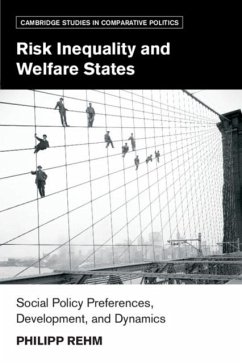The transformation of night-watchman states into welfare states is one of the most notable societal developments in recent history. In 1880, not a single country had a nationally compulsory social policy program. A few decades later, every single one of today's rich democracies had adopted programs covering all or almost all of the main risks people face: old age, sickness, accident, and unemployment. These programs rapidly expanded in terms of range, reach, and resources. Today, all rich democracies cover all main risks for a vast majority of citizens, with binding public or mandatory private programs. Three aspects of this remarkable transformation are particularly fascinating: the trend (the transformation to insurance states happened in all rich democracies); differences across countries (the generosity of social policy varies greatly across countries); and the dynamics of the process. This book offers a theory that not only explains this remarkable transition but also explains cross-national differences and the role of crises for social policy development.
Dieser Download kann aus rechtlichen Gründen nur mit Rechnungsadresse in A, B, BG, CY, CZ, D, DK, EW, E, FIN, F, GR, HR, H, IRL, I, LT, L, LR, M, NL, PL, P, R, S, SLO, SK ausgeliefert werden.









